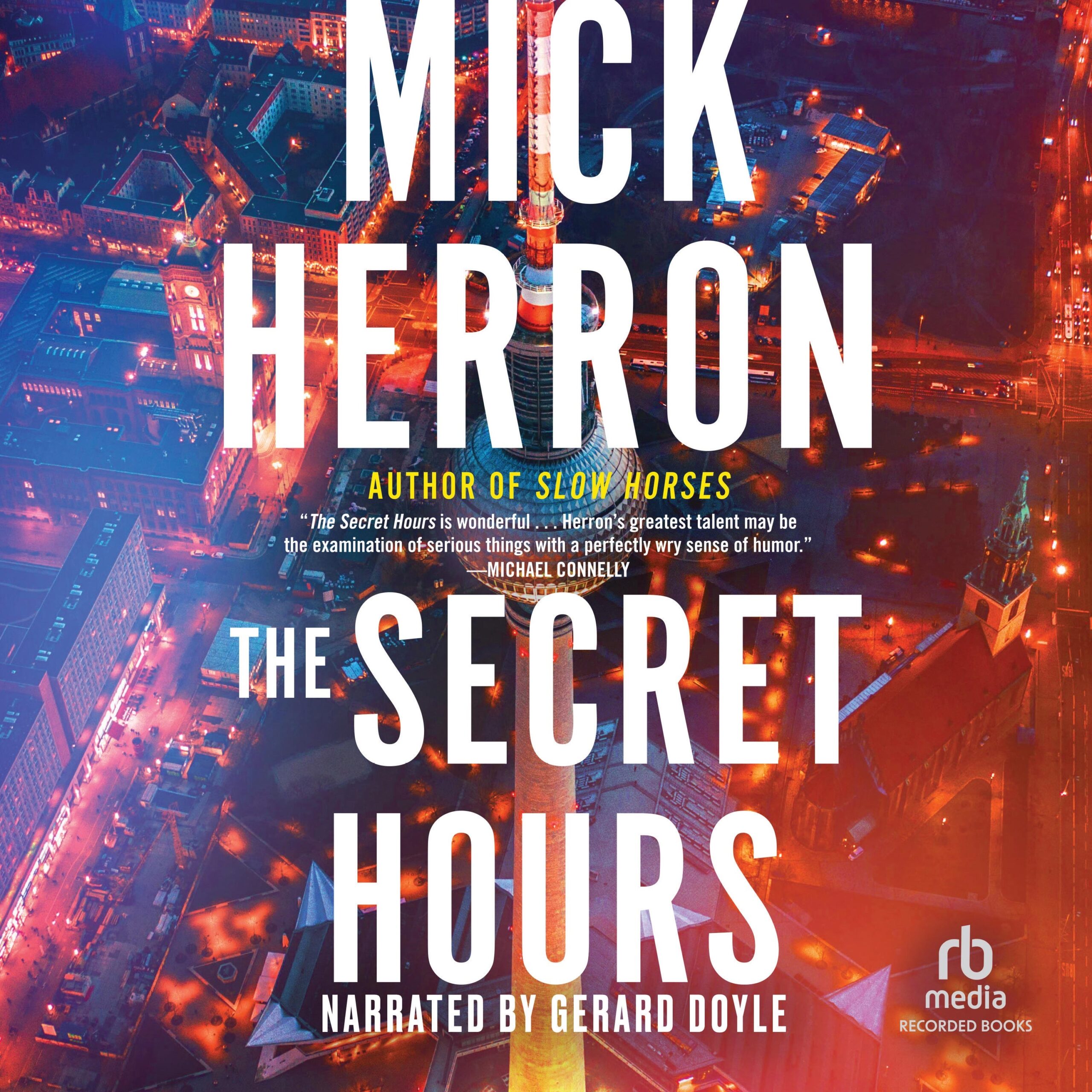
‘The Secret Hours,’ by Mick Herron
Although presented as a stand-alone novel, “The Secret Hours” clears up some of the murk surrounding the histories of a few characters from Herron’s wildly popular “Slow Horses” series.
In present-day London, a committee investigating the extra-legal activities of the security services grinds on fruitlessly – until a secret file lands in its lap. That sends the action back to 1994, to a Berlin still in flux after reunification.
Bouncing between the two eras, the plot is beautifully complex, and, as with its predecessors, mordant humour ripples throughout, not least in its depiction of political mischief. No one conveys the spirit of these books so brilliantly as narrator Gerard Doyle.
His gentle voice gives an appreciative caress to the book’s many ironies, conveying the self-satisfaction and hubris of men and women out for personal gain under the guise of public service.
He also delivers pompous nitwits, disillusioned functionaries and cynical veterans of decades of skulduggery with palpable relish. (Recorded Books, Unabridged, 123/4 hours)
‘The Sun Walks Down,’ by Fiona McFarlane
McFarlane’s impressive second novel is set in 1883 in the South Australian outback and centres on the search for a young boy, lost during a dust storm.
The story, beautifully narrated by Australian actor Emma Jones, emerges from at least a dozen points of view – that of the boy’s parents, sisters and settler neighbours; two Aboriginal farmworkers; a couple of traveling artists; two police officers; and the boy himself, 6-year-old Denny Wallace.
Events unfold against South Australia’s elemental landscape and spectacular skies, a vividly conjured setting that, here, accentuates the fragility of the settlers’ pursuits and the Aborigines’ deep connection to this ancient land.
McFarlane introduces her characters gradually, deepening our understanding of their personalities and complex yearnings – not all entirely admirable.
Such a large cast of characters would normally be difficult to keep straight in an audiobook without tedious backtracking, but McFarlane’s skill in evoking their distinct inner lives and Jones’s deftness in capturing them in manner and accent keep them perfectly distinct. (Macmillan, Unabridged, 13 hours)
‘Anansi’s Gold: The Man Who Looted the West, Outfoxed Washington, and Swindled the World,’ by Yepoka Yeebo
Yeebo’s engrossing account of the Oman Ghana Trust Fund, a scam conceived by John Ackah Blay-Miezah, begins with a detailed explanation of the conditions that made the fund appear plausible.
Put briefly, Ghana (formerly the Gold Coast), rich in gold and other resources, had been “ripped apart by colonialism, then . . . set upon by vultures.” This reality supported the notion that some of Ghana’s gold had been squirreled away by someone.
That someone, according to Blay-Miezah, was Kwame Nkrumah, Ghana’s first prime minister, who had bequeathed it to him to invest in Ghana’s infrastructure. There was, of course, a snag: getting the fund – eventually “worth” USD130 billion – out of the Swiss banks.
A man of immense charisma, resilience and slipperiness, Blay-Miezah lured hundreds of people, over 15 years, to invest in the fund, promising increasingly preposterous returns.
Jude Owusu narrates this extraordinary tale in a resonant voice, bringing a flawless Ghanaian accent to the major players, changing unobtrusively to pick up Americans and British. (Bloomsbury, Unabridged, 121/2 hours). – Katherine A Powers/THE WASHINGTON POST







